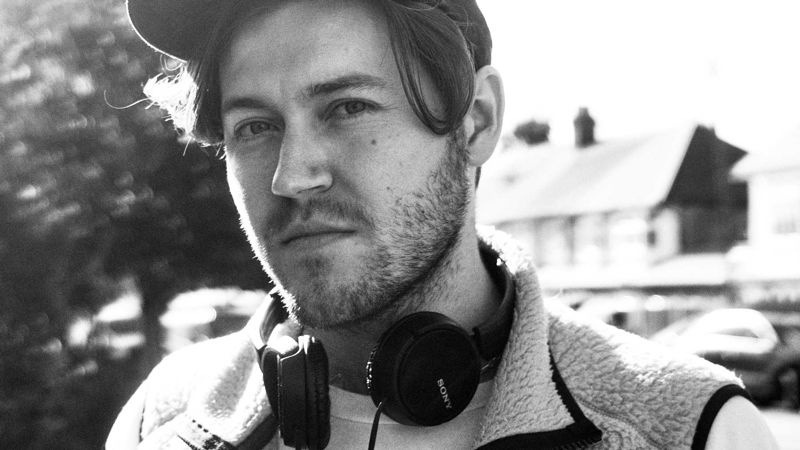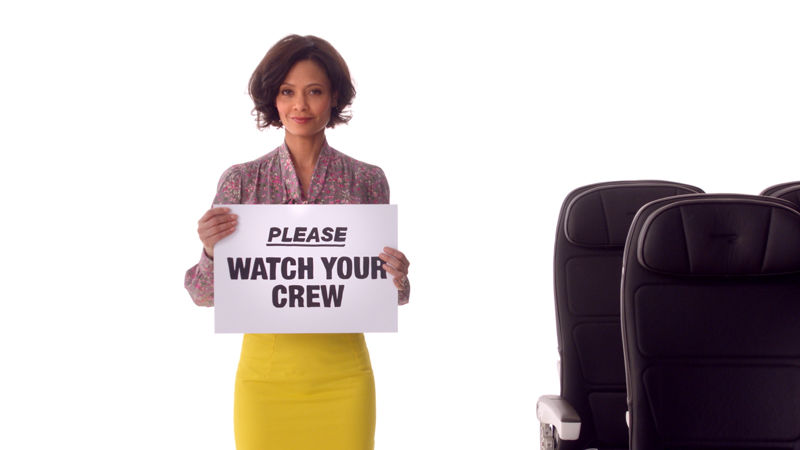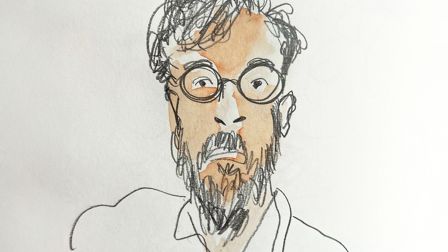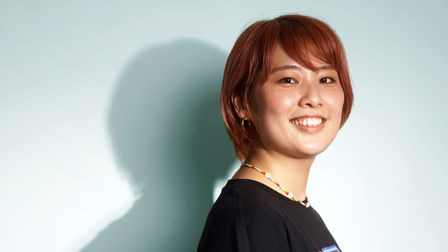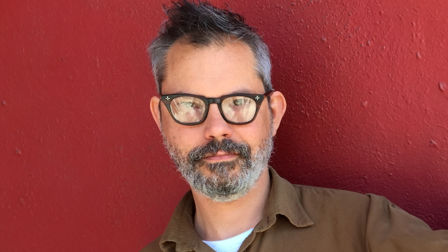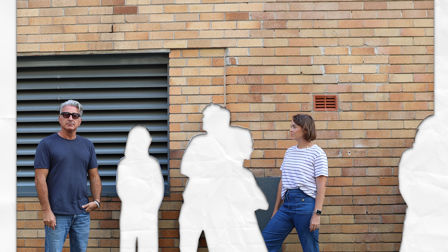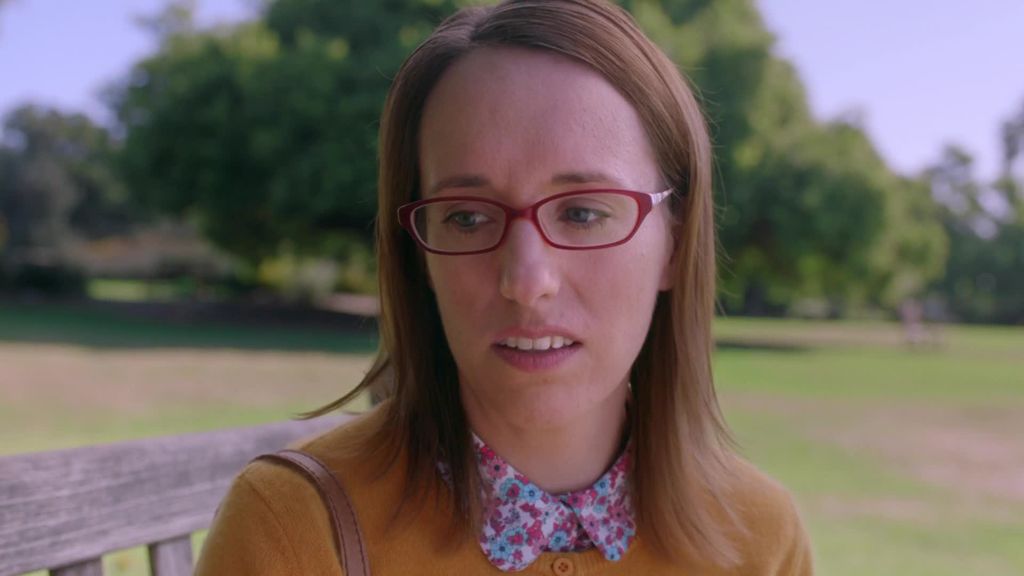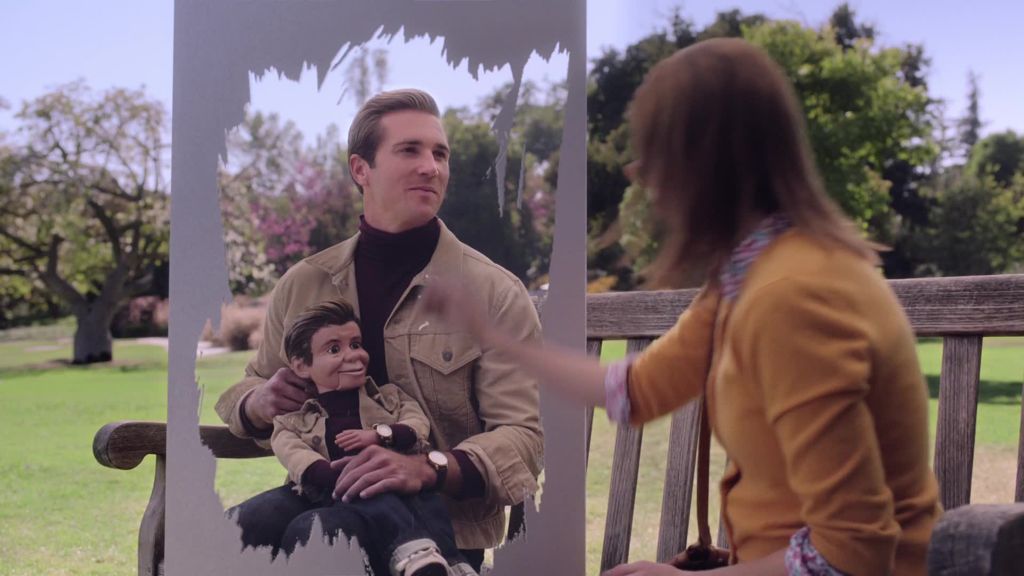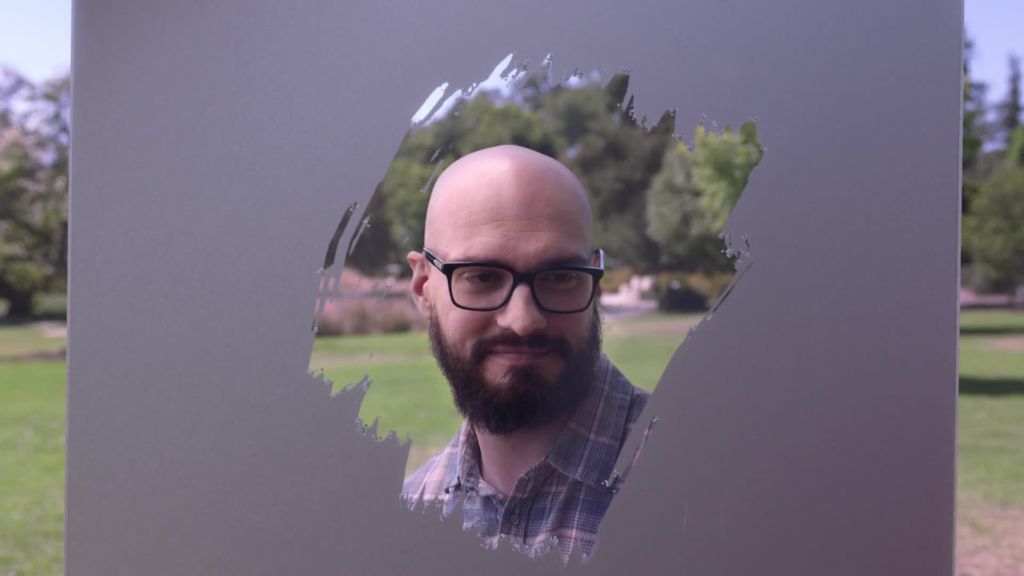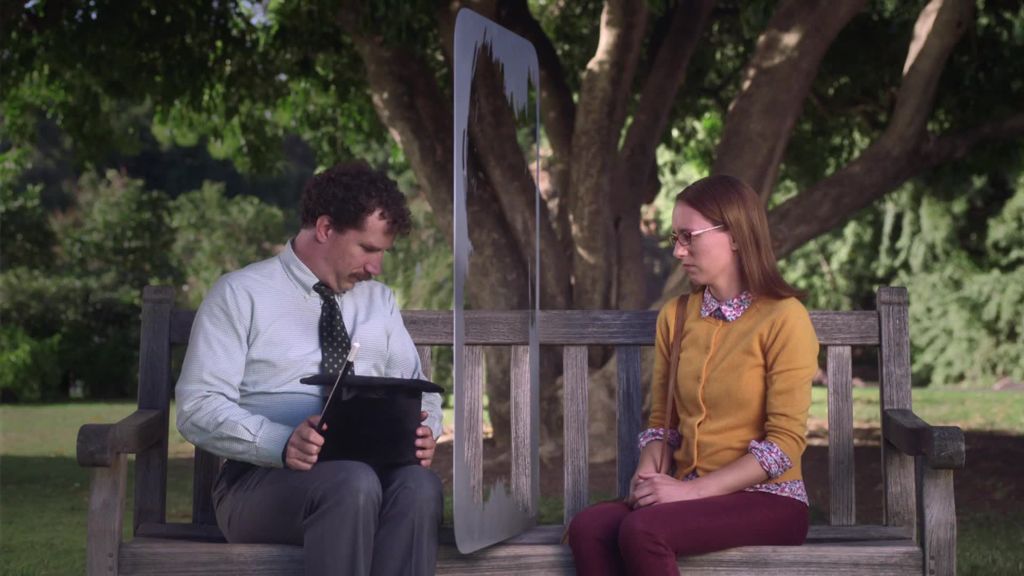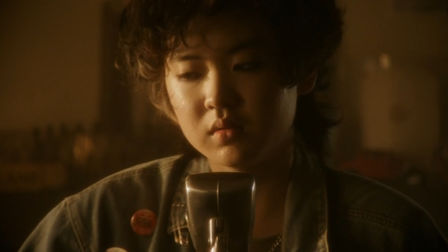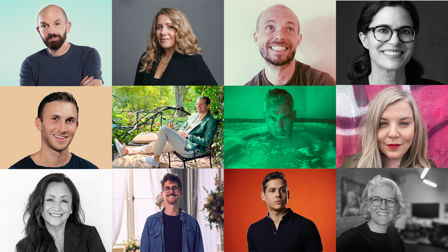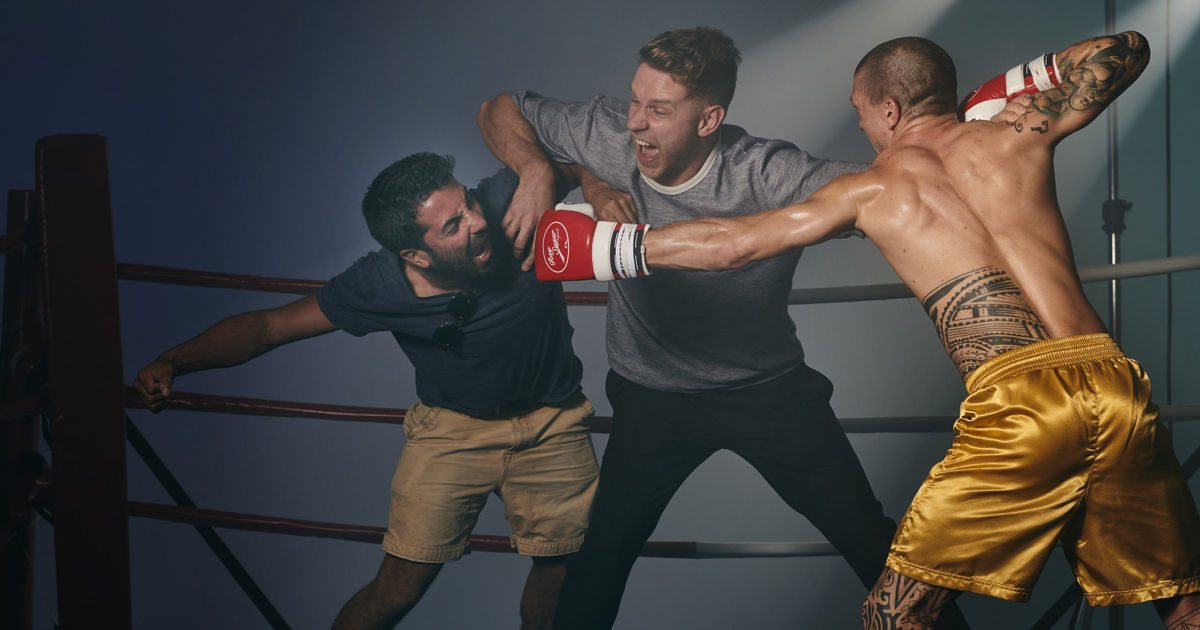A comedy of (good) manners
Carol Cooper meets AMV BBDO’s creative duo Jack Smedley and George Hackforth-Jones, a pair of gentlemen jesters whose motto is 'never punch down'.
Above: George (left) and Jack (right)
Examining the work of AMV BBDO’s Jack Smedley and George Hackforth-Jones, one realises how comedy advertising can be a win-win situation: the audience has a laugh, the brands – such as The National Lottery, Curry’s, The Guardian and The Economist – reap the rewards of high-concept humour and most importantly, nobody gets hurt.
“Are we expected to be funny? Just to manage expectations, you know. Cause we’re not.” So reads George Hackforth-Jones’s email as we’re arranging the interview. Each of the three sentences is arranged on its own line, double spaced; affording the words a restrained elegance; allowing the rhythm to come through. It’s almost a haiku. This is an email crafted by a true writer. Both Hackforth-Jones and Smedley give good email, drily witty but warm, well mannered and modest to a fault.
Of course they’re both funny. We meet at AMV’s HQ and as I set up the recording device I ask if they can do different accents so I can tell them apart when transcribing, Jack slips effortlessly into Northern Irish, one of the hardest accents to do, while George lets out a few comedy squeaks. But they’re not funny in that narcissistic personality disorder, ‘always on’, manic clown kind of way, theirs is a gentle, gentlemanly humour.
Credits
powered by
- Agency BBH/London
- Production Company Outsider
- Director James Rouse
-
-
Unlock full credits and more with a Source + shots membership.
Credits
powered by
- Agency BBH/London
- Production Company Outsider
- Director James Rouse
- Creative George Hackforth-Jones
- Creative Jack Smedley
- CD Joakim Borgstrom
- Producer Natalie Parish
- Assistant Producer Sarah Cooper
- Producer Benji Howell
- DP Alexander Melman
- Post MPC/London
- Editor Bill Smedley
- Sound Design Factory
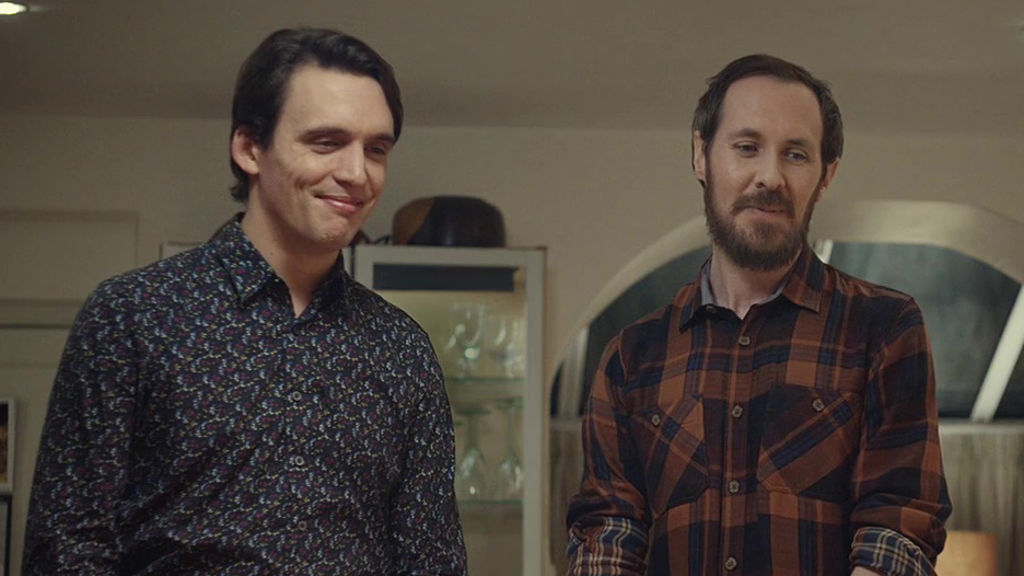
Credits
powered by
- Agency BBH/London
- Production Company Outsider
- Director James Rouse
- Creative George Hackforth-Jones
- Creative Jack Smedley
- CD Joakim Borgstrom
- Producer Natalie Parish
- Assistant Producer Sarah Cooper
- Producer Benji Howell
- DP Alexander Melman
- Post MPC/London
- Editor Bill Smedley
- Sound Design Factory
Sometimes comedy holds a mirror up to life, other times it takes truths from one world and applies them to another world.
However, they’re not strangers to the red-nose-big-floppy-shoes look. When they started out as creatives and needed cash while doing their book and unpaid placements, they “moonlighted as clowns. Which wasn’t as creepy as it sounds,” says Smedley. “We entertained posh kids at the weekends until we were at BBH and Nick Gill asked why we had to duck out of a pitch review one Saturday.” When he was told they’d had to go and do Jamie Oliver’s kids’ birthday party he gave them a job. “He sent an email round the agency saying he’s literally hired a pair of clowns,” adds Hackforth-Jones, “we have the email framed somewhere.”
Prior to that the pair had been on a grad scheme at JWT and had started out in advertising as “terrible account managers”. They’d initially met while working as barmen at the Emirates football stadium. “We both skived off, nicked a pasty and ate it in the toilets. Which sounds like a euphemism… but isn’t…” They say they’ve both had lots of different jobs. Which has possibly informed the deep understanding of humanity that they bring to their work.
Credits
powered by
- Agency AMV BBDO/London
- Production Company MindsEye
- Director Andrew Gaynord
-
-
Unlock full credits and more with a Source + shots membership.
Credits
powered by
- Agency AMV BBDO/London
- Production Company MindsEye
- Director Andrew Gaynord
- Editing Speade
- Post Production The Mill/London
- Creative Director Andy Clough
- Creative Director Richard McGrann
- Creative Jack Smedley
- Creative George Hackforth-Jones
- Producer Tara Megson
- Executive Producer Hughie Phillips
- Producer Hera King
- DP Stuart Bentley
- Prod. Designer Sarah Jenneson
- Editor Gareth McEwen
- Colourist Seamus O'Kane
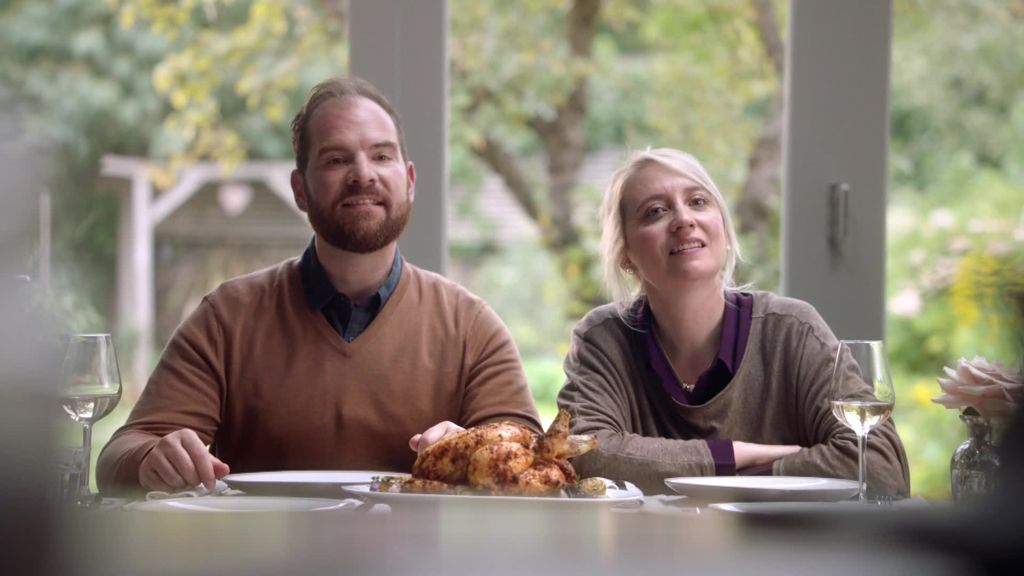
Credits
powered by
- Agency AMV BBDO/London
- Production Company MindsEye
- Director Andrew Gaynord
- Editing Speade
- Post Production The Mill/London
- Creative Director Andy Clough
- Creative Director Richard McGrann
- Creative Jack Smedley
- Creative George Hackforth-Jones
- Producer Tara Megson
- Executive Producer Hughie Phillips
- Producer Hera King
- DP Stuart Bentley
- Prod. Designer Sarah Jenneson
- Editor Gareth McEwen
- Colourist Seamus O'Kane
Work such as Curry’s Kitchen Envy, the National Lottery Scratch and See series of spots display quite profound human insights – feelings of bourgeous inadequacy and the dashed dreams of a lonely hearts… Becket said there is nothing funnier than unhappiness. I ask them if they think the best humour is rather sad? “We like humour based on real life and maybe real life is a bit sad. Or maybe we’re a bit sad,” quips Smedley.
Hackforth-Jones agrees about the quest for truth: “sometimes comedy holds a mirror up to life, other times it takes truths from one world and applies them to another world.” They say that James Rouse is great at the former and that they’d had him in mind when writing the Guardian/Observer Own the Weekend series. In the Dinner Party spot he deftly directs the unease of two guys with nothing in common forced to make chat. It’s excrutiatingly well-observed comedy of the cringe.
Camelot – Red Button
Camelot – Ventriloquist
Camelot – Train Man
Camelot – Magician
He explains how the Lottery ads are an example of the latter – where truths from one world are applied to another. “We know the world’s not full of giant scratchcards (sadly), but that flutter you get when you play, of not knowing, of slowly revealing the truth – apply that to dating and you have something ridiculous, maybe even funny... If the idea is strong, and you stay close to those human or product truths, people recognise something in them, and things tend to be funnier.” They chose director Harold Einstein for the spots as they needed his “more surprising and random” style.
If there's an obvious gag, try to play to the most intelligent person in the room.
And their ideas are strong. When they were putting their portfolio together – rather than a flashy Nike spot, they thought they’d do some pro bono work for a local Brixton business, Etta’s Seafood Restaurant, “we went through all the fish puns. Fish, this, fish that. Michael Fish, it was that simple,” recalls Hackforth-Jones. They discovered the weatherman who denied that the 1987 hurricane forecast was on its way was “dining out on his own infamy,” they got in touch with him and he was game for retake of that fateful forecast. This time he gets it right, warns of a hurricane and wanders off set saying “that could have been embarrassing.” The tagline is ‘fish like never before’. It’s understated and very charming.
Their work is often high concept, but always handled with subtlety and humanity – the latter being an important part of their ethos. When I ask if they feel there is anything off limits in comedy Smedley answers “yes!” straight away – “you want to tread a line between truthful things and offending people who might be easy targets. If there's an obvious gag, try to play to the most intelligent person in the room. Try to go beyond that gag; never punch down. I think in advertising that goes for most things. Any minorities, or easy targets, don't make the obvious gag. You should be punching up.”
Hackforth-Jones elaborates. “The gag in Scratch and See was what happens when you uncover a face that you don't like? That was cheaper, more superficial kind of gag to make so we tried to soften it by focussing on what people were holding, which revealed more about their personalities.” “That’s exactly what I mean,” chimes Smedley, “ the easy gag is, ‘Oh he's butters,’ or ‘God, she's rank,’ but that's the cheap joke you don’t want to make.” “Give the viewer some intelligence,” adds Hackforth-Jones, “they might be thinking something but don't tell them what to think.”
Letting the audience work for a gag is another way to illicit fondness for a brand. Remember the in-jokes of those witty Silk Cut or Benson & Hedges posters that seem to say if you’re smart enough to get these ads, you’re a Silk Cut kind of person.
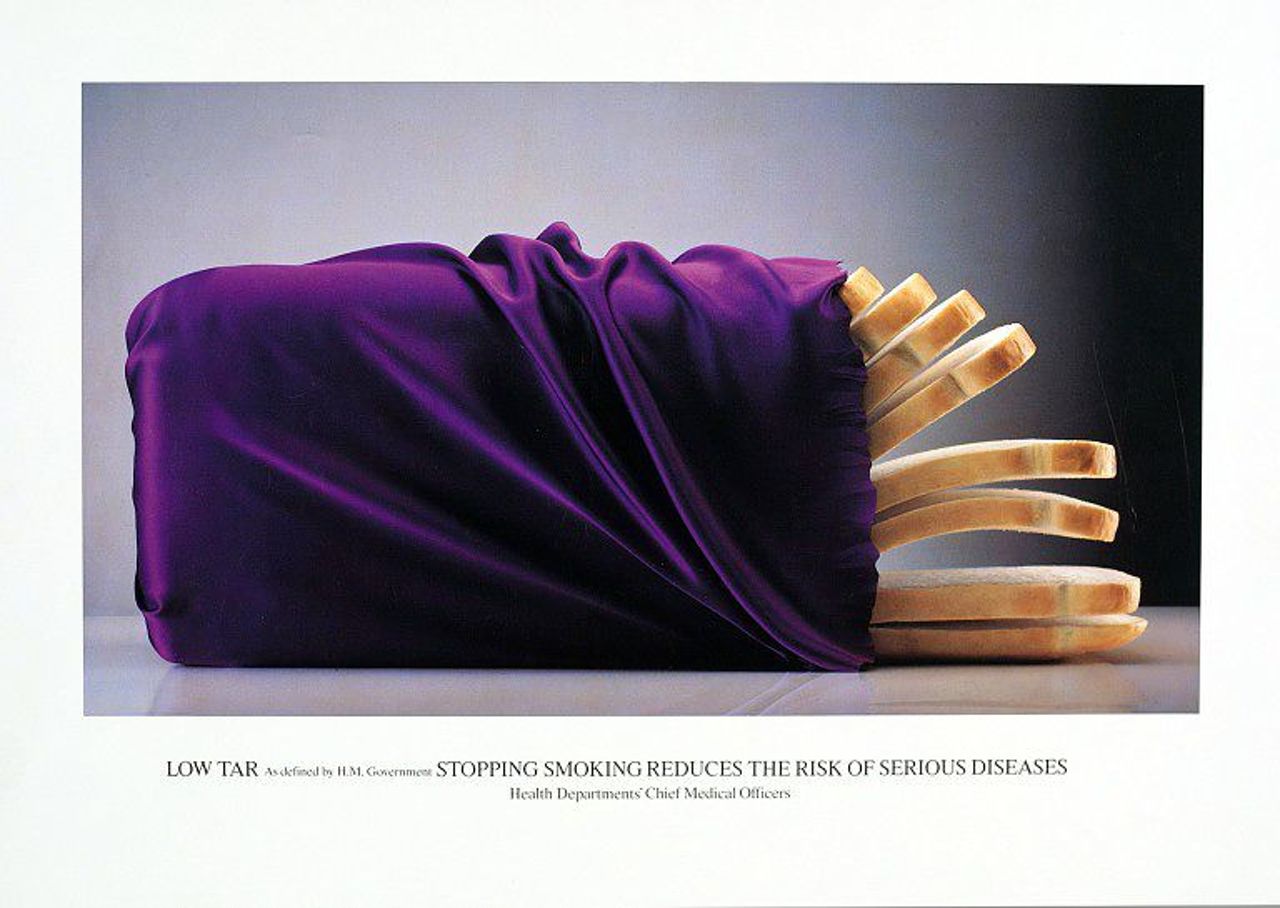
Showing respect for an audience’s intelligence reflects well on the brand.
A classy brand such as The Economist obviously called for something knowing and smart, so the duo came up with a simple but clever stunt: to coincide with the MPs vote on Brexit on 29 January they launched a mobile outdoor poster promoting the business affairs journal, that circled the Houses of Parliament, punning on the endless circular arguments...
“People like John Oliver, Charlie Brooker and The Daily Mash make a living from seeing the funny side of a shit situation. I guess we tried to do the same for The Economist, when things got so dire we had a fun day trolling the government in Parliament Square,” says Smedley.
I ask them if satire is a favourite comedy form and what or who inspires their work. “We were always taught not to try and be funny (which is a great excuse...), don’t write gags, think of a funny premise and write it straight. Simon Rich is a writer we both love. He nails this,” says Hackforth-Jones.
Certainly you want to entertain a little bit, but at the end of the day we're just selling shit.
Smedley muses that they do relish being tasked with writing typically British humour: “At the risk of sounding like Brexiteers... we love working on briefs for UK brands. There’s a lot of stuff British people find funny that nationalities just don’t. We have an awkward sense of humour as a nation and when this is done well, there’s nothing funnier. Americans are better at gags. Their sitcoms for example, such as Modern Family, are rammed full of gags. It maybe a generalisation but their funniest spots tend to have more of a punchline than ours.”
Circling back to Brexit, in these unsettling times have they noticed more or less humour in advertising? “There’s always going to be a place for humour,” says Smedley, “people like lols. I don’t think that’s gone out of fashion, even if the awards shows are dominated by cause-based stuff.”
“You get some that say in times of turbulence comedy is more in demand,” muses Hackforth-Jones, “Maybe that's true. Certainly you want to entertain a little bit, but at the end of the day we're just selling shit. People definitely appreciate it more if you make them smile. It's not rocket science.”
)
